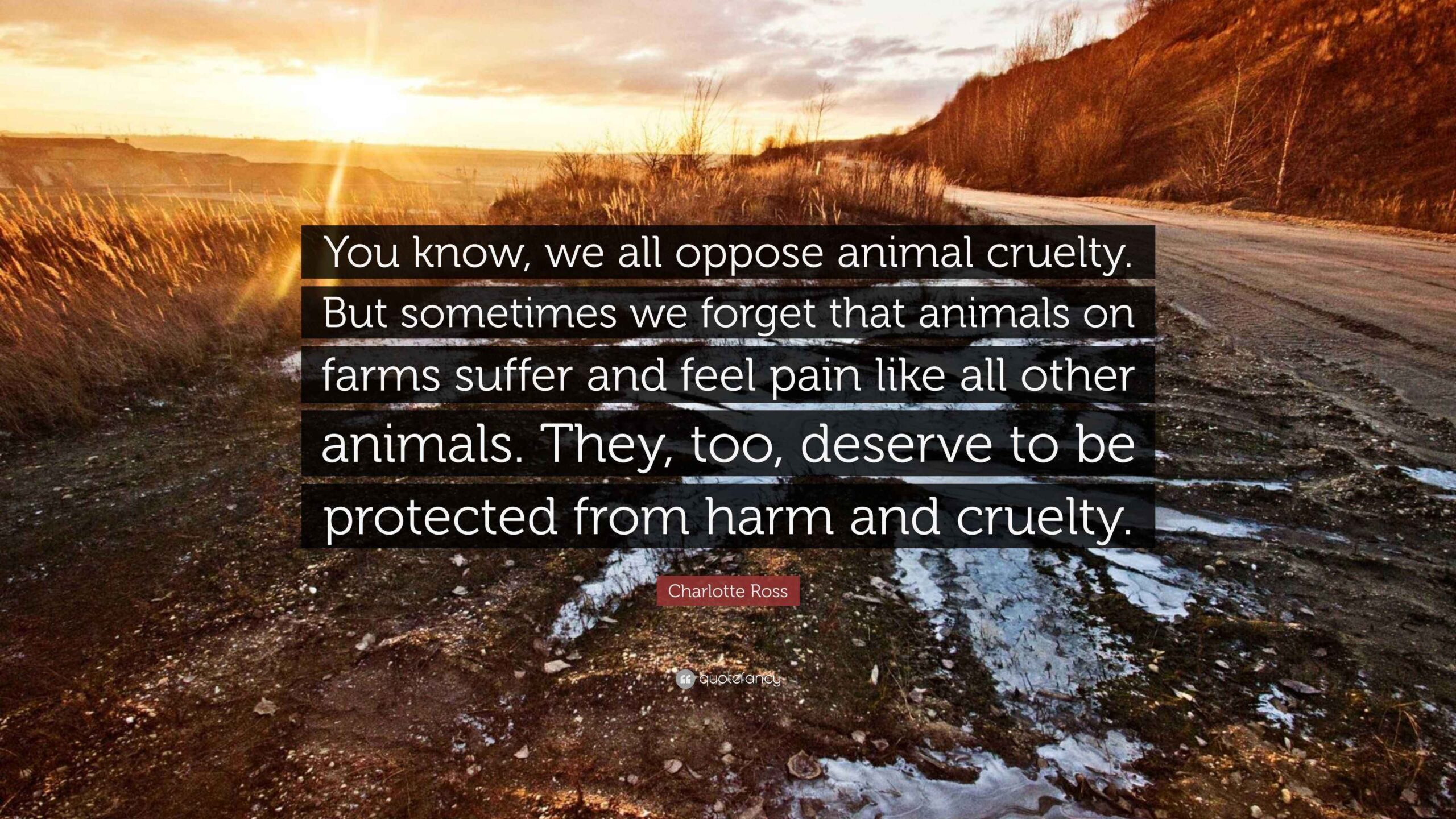In the kaleidoscopic realm of societal values, animal cruelty emerges as a contentious topic that evokes passionate discourse. To ardently oppose the cessation of animal suffering is to venture into a paradox, where the juxtaposition of empathy and callousness creates a dissonance that merits exploration. At first glance, the refusal to support initiatives aimed at curbing animal cruelty may appear incongruous with the contemporary ethical perspective that champions compassion.
One could liken the struggle against animal cruelty to navigating a labyrinth; each twist and turn presents myriad moral quandaries. In this intricate maze, conflicting interests reside. While the vast majority of individuals might profess an aversion to animal misery, the underlying motivations driving some to resist effective reforms are multifaceted. They range from ignorance of the real implications of their choices to deeply ingrained cultural norms.
To elucidate this convoluted landscape, one must first examine the foundational premise that underpins the advocacy against animal cruelty: ethics. Ethical frameworks often diverge on the treatment of non-human creatures. For instance, utilitarianism engenders arguments that prioritize the greatest good for the greatest number, sometimes relegating animal welfare to a secondary status, dismissing its significance as it intersects with human-centric issues. This perspective leads some to conclude that the welfare of animals is a trivial concern in comparison to pressing human endeavors.
Cultural conditioning plays a pivotal role in how society perceives animals. In numerous societies, animals serve utilitarian functions. Consider the agricultural heartlands where livestock represent not merely a source of sustenance but an economic backbone. To advocate for substantial changes in their treatment is, for many, akin to proposing the dismantling of entire livelihoods. The metaphor of the pastoral dream obscures the reality of suffering; thus, the cognitive dissonance between economic benefit and ethical accountability becomes palpable. In these scenarios, the discomfort derived from confronting the ethical implications of animal husbandry often results in an instinctual resistance to discussions on cruelty prevention.
Moreover, misinformation abounds, creating a breeding ground for apathy towards animal rights. The propagation of false narratives—misconceptions surrounding the welfare of animals in farms or laboratories—facilitates complacency. Individuals may believe that existing regulations suffice, allowing them to continue their lives uninhibited by the malaise of complicity in cruelty. This surface-level understanding renders the fight against animal cruelty abstract rather than immediate and real. The metaphorical veil of ignorance shrouds the painful realities faced by countless creatures, rendering the call for change seemingly unnecessary.
Yet, at the heart of this debate lies an unacknowledged psychological phenomenon: cognitive dissonance. When confronted with the disparity between their beliefs about animal welfare and the actions they take—whether consuming animal products, utilizing animal-tested products, or simply turning a blind eye—they experience an internal struggle that can lead to defensive behaviors. Rather than embrace change, some individuals may resort to rationalizing or trivializing the suffering inflicted upon animals, seeking solace in a flawed logic that attempts to preserve their worldview.
This psychological resistance is intensified by the fear of repercussions that may ensue from adopting more compassionate practices. The transition to a more ethically aligned lifestyle demands not only personal conviction but also a re-evaluation of social relationships and consumer habits. It beckons individuals to step into uncharted waters, potentially alienating them from their communities or diminishing their established identities. Thus, the trepidation surrounding societal acceptance becomes a significant barrier to endorsing initiatives aimed at abolishing animal cruelty.
Delving into the realms of economics and commerce further complicates this discourse. The animal agriculture industry wields considerable influence and wealth, lobbying against reforms that threaten its profitability. This economic clout facilitates the dissemination of propaganda aimed at discrediting the motivations of animal rights activists, framing them as fringe ideologues detached from practicality. The compelling yet disingenuous narrative that prioritizes profit over welfare shields those who benefit from animal exploitation, tempering the urgency of the call to action against cruelty.
Additionally, the concept of ‘othering’ plays a crucial role in how individuals gravitate away from supporting animal welfare initiatives. By relegating animals to a status of ‘the other,’ people may disregard ethical considerations altogether, resigning themselves to the notion that animals are fundamentally separate from human experience. This detachment fosters an egoistic worldview that fails to recognize the intrinsic value of non-human life.
However, as debates surrounding animal rights continue to gain momentum, so too does the awareness of cruelty inherent in various industries. Awareness campaigns, documentaries, and grassroots movements serve as vital conduits for knowledge dissemination, illuminating the path toward a more compassionate society. The gradual dismantling of the barriers that inhibit progress in animal welfare is emblematic of evolving ethical paradigms, ultimately heralding a shift in societal values toward a more harmonious existence with all sentient beings.
As the dialogue surrounding animal rights becomes increasingly nuanced, one must grapple with the uncomfortable reality that opposing the abolition of animal cruelty is frequently rooted in fear, ignorance, cultural conditioning, and economic self-interest. In navigating this labyrinth of moral complexities, it is imperative to foster understanding and encourage meaningful discourse. Only then can society collectively strive to transcend the archaic paradigms that have historically justified cruelty and usher in an era where empathy prevails.










